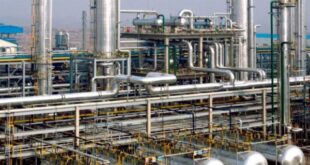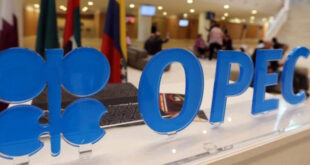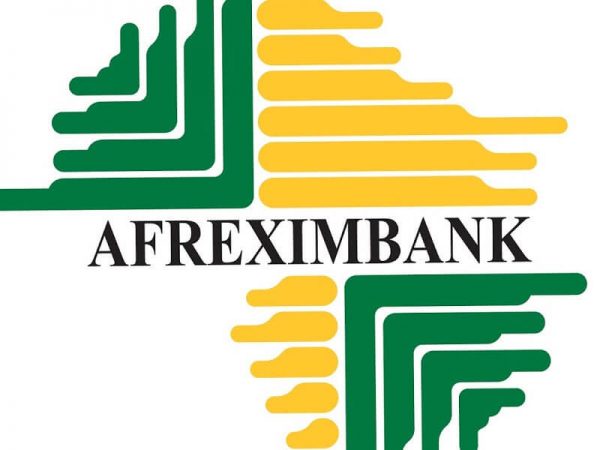
Coordinating Minister of the Economy, Ngozi Okonjo-Iweala, has expressed the need for Nigerians to henceforth view the country as a non- oil producing nation, and declared that efforts are on to explore other sources of revenue.
She spoke as the Federal Government hinted that Nigeria has the capacity to generate over N10 billion in revenue from liquefied petroleum gas (LPG) by 2018 if half of Nigerians using kerosene for their domestic needs switch over to gas.
The Minister of National Planning, Abubakar Sulieman, who made this known last week in Abuja at the inauguration of the inter-ministerial committee on Kerosene to gas initiative in Nigeria: The Indonesian Model, said “If 50% of the current kerosene users in Nigeria switch over to Liquefied Petroleum Gas (LPG), Nigeria will generate about US$10.38b by 2018.”
Meanwhile, there are indications that the nation’s manufacturing sector is increasingly coming under severe strain, occasioned by high cost of production.

Addressing newsmen moments after laying the 2015 budget proposals before the House of Representatives yesterday, the minister said the country was working to also broaden the tax base, even as revenue leakages were being blocked.
She explained that the Subsidy Reinvestment and Empowerment Programme (SURE-P) budget for next year is about N102 billion, adding that “SURE-P was facilitating an excellent job of making sure that critical infrastructure is finished and the country’s social safety net is kept to protect the vulnerable.
“We have a budget expenditure of about N4.3 trillion, revenues of N3.6 trillion. We have tried to make up for the drop from the $78 per barrel to $65 by raising non-oil revenues. This budget points to the fact that this country is a non-oil country and I think we want Nigerians to begin to think of the country in that way. We have worked very hard with the guidance of Mr. President to move on non-oil revenue.
We have closed many loopholes and leakages. We have tried to broaden the tax base. We have closed some exemptions, all of this will bring additional revenues into coffers,” she stated.
She explained that the 2015 budget was based on a few key indicators on $65 per barrel benchmark, adding “we are going to stick to it for now despite the declining prices because we fill the average price next year [should be] around $65-70. The production level is 2.27 million barrels per day. We have revised the growth rate based on the new parametres of the country, down from 6.35 to 5.5 per cent next year. But that is still one of the fastest growth rates we are experiencing in the world today.”
The situation in the manufacturing sector which assumed ascendancy in the last six-weeks, has been traced, amongst other factors, to the continuous fall in oil prices in the international market, and the slide in the foreign exchange rate of the naira, when compared against the dollar and other hard currencies.
Fear is being expressed by stakeholders in the Organised Private Sector (OPS), some of whom said it is a matter of time before the unfolding development snowballs into a major economic crisis, if no urgent steps are taken to stem the tide.
Besides the falling oil prices on which the nation relies for over 85 per cent of its federally collectable revenue, the devaluation of the naira and the non-inclusion of raw material inputs in sourcing foreign exchange from the bi-weekly Royal Dutch Auction System (RDAS), according to a source in one key player in the OPS, have grave implications for those in manufacturing, who depend on essential inputs from overseas.
The official said what is playing out now is reminiscent of the events of 1986 when the naira was devalued by the then military government, which resulted in the steep rise in prices and caused collateral damage to manufacturers of consumer products, the effects of which the nation has not recovered from.
He said what is happening currently will lead to the lowering of the purchasing power of the local currency, increase in cost of inputs, pointing out that the resultant effect would be that goods emanating from Nigeria will command higher prices, as against imported ones. This, he added, “will sound a death knell to the indigenous manufacturers, or whatever is left of that sector .”
While acknowledging the fact that the unfolding scenario was unanticipated, the official, nevertheless called for a shock therapy, saying the response to the challenge, especially by manufacturers and other segments of the OPS, might result in production cuts and price adjustments, with its attendant consequences. He said one of the most painful unintended outcomes of the measures manufacturers might adopt to keep afloat, would be to lay off some of their workers.
“This will be at variance with government’s often trumpeted agenda, which is that of creating jobs,” he said.
The official noted that since the economy has come under so much stress, the Federal Government should, as a matter of urgency, consider postponing the implementation of the proposed ECOWAS Common External Tariff (CET).
 MMS PLUS NG – Maritime, Aviation, Business, Oil and Gas News Online Newspaper with coverage in Maritime, Oil and Gas, Aviation, Power and Energy as well as Financial News
MMS PLUS NG – Maritime, Aviation, Business, Oil and Gas News Online Newspaper with coverage in Maritime, Oil and Gas, Aviation, Power and Energy as well as Financial News









